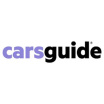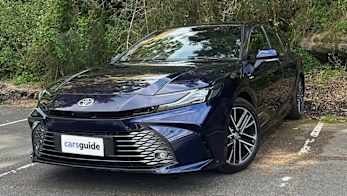It has been a turbulent past year for Australia's automotive industry but one that will go down as its best, at least in numbers of cars sold.
A record one million new cars are tipped to be sold here in 2007, the first time the magic million will be eclipsed.
It should be good news but such sales have only encouraged new brands to flood the market and pressure the local manufacturing base and established marques - cutting margins on new cars and largely to blame for forcing redundancies in Australian factories.
Good news for new-car buyers, at least.
By the end of this year, Czech and Indian-built cars will be sold in Australia, with Chinese-made cars soon to follow.
Those cheap imports, along with more than 40 other imported brands competing for the Australian new-car dollar, have been held partly to blame for job losses at Holden, Mitsubishi and Ford.
Holden cut more than 600 jobs at its Elizabeth plant in March, Ford announced it will stop production of its long-wheel-base cars, putting more pressure on its Geelong workforce which was cut by 600 late last year, while Mitsubishi's Tonsley Park factory is operating at just 50 cars a day with a “skeleton” staff.
The job losses and flow-on job cuts in the automotive industry - more than 7500 in the past three years - also have been the result of consumers shying away from the Australian-built large sedans amid high petrol prices.
However, domestic carmakers are sticking to their ambitions. Holden's new VE Commodore is proving to be a viable export option, as are Toyota's Australian-built Camry and Aurion.
Up to 50,000 Commodores will end up in the U.S. as Pontiacs and long-wheel-base models will be exported to the Middle East, China and Korea.
Mitsubishi - rebutting speculation that its SA plant will close - says it is tracking to its business plan, despite less than 900 of its 380-model sedans selling each month recently.
Anthony Casey, general manager of national sales for Mitsubishi Australia, said the business, at the end of the first quarter of its fiscal year, looked like “a reasonable distance in front of where we had to be”.
“We've stabilised (380-model sales) and, certainly from an imported product point of view, we were able to launch a number of new cars at the end of last year and they have been good for us,” Mr Casey said.
“I think we've done a lot of work to consolidate our position. We did a lot of work last year in terms of right-sizing the business.”
Mr Casey said Mitsubishi was gaining ground in the all-important eastern states in terms of sales and establishing a solid dealer network.
Both Adelaide carmakers, Mitsubishi and Holden, have quietly revealed they have considered and studied bringing diesel powerplants to their range . . . even hybrid cars.
Imported brands, particularly from Europe, are capitalising on a growing Australian passion for diesel, while improving hybrid technology has encouraged a growing green brigade of motorists here.
GM Holden boss Denney Mooney said the economic climate had made it tough for the Adelaide carmaker to deliver a brand-new-model Commodore in the past financial year.
The start-up costs for the VE Commodore and tough times for new-car trading sent GM Holden $146.5 million into the red in 2006.








.jpg)

.jpg)

.jpg)
.jpg)
.jpg)





_0.jpg)








.jpg)